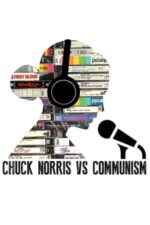The Ghost in the Machine: Why VHS Still Haunts Us
Okay, so we're talking about VHS tapes. Not just as relics of a bygone era – though they are wonderfully nostalgic for those of us who remember rewinding them with a pencil (seriously, who did that?!) – but as something… more. Something imbued with a peculiar kind of power and unease. It’s fascinating how much these bulky plastic rectangles continue to spark our imaginations, doesn't it?
Think about it: for a generation, VHS was home entertainment. It was Saturday morning cartoons, family movie nights, the slightly dodgy bootleg copies traded amongst friends. It represented access – a democratization of film that hadn’t existed before. But that accessibility also created something else: a space for the weird, the lost, and the deliberately unsettling to linger.
The films listed really highlight this. Gap Year, with its corrupted sitcom episodes, taps into that primal fear of the familiar becoming distorted. It's like finding a glitch in reality itself, preserved on magnetic tape. And then you have Archivo_Incidente2005 – the idea of a broadcast bleeding into your life, an intrusion from the analog world… it’s genuinely creepy! It speaks to that feeling of vulnerability we sometimes get when technology feels like it's watching us back.
Even something like Sadako DX, with its cursed video and escalating horror, gains extra weight through the VHS lens. The grainy image quality, the tracking errors – they aren’t just aesthetic choices; they contribute to a sense of dread and authenticity that digital formats often lack. It feels… realer somehow.
Beyond the horror genre, though, there's something beautiful about the preservation aspect. Adjust Your Tracking perfectly captures this. These collectors aren’t just hoarding dusty tapes; they’re safeguarding a piece of cultural history. They understand that VHS isn't just about the movies themselves, but about the entire experience – the cover art, the rental store atmosphere, the communal act of sharing and discovering films together.
And then there are personal archives like Soleil Moon Frye’s in kid 90. That raw, unfiltered glimpse into a life captured on VHS is incredibly intimate and powerful. It's a reminder that these tapes weren't just for entertainment; they were used to document lives, memories, and moments that mattered. It’s almost as if the magnetic tape itself holds onto those emotions.
Finally, The Last Broadcast takes this idea to its most unsettling extreme – using VHS as a medium for documenting something truly terrifying, blurring the lines between reality and fiction in a way that's deeply disturbing.
So, why does VHS still resonate? I think it’s because it represents a time when technology felt less ubiquitous, more tangible. It was an imperfect format, prone to glitches and degradation – but those imperfections are part of its charm. They remind us that even the most advanced technologies can be vulnerable, susceptible to decay, and capable of holding secrets. It's a ghost in the machine, whispering stories from another era.
What do you think? Have you ever stumbled across a VHS tape that felt… off?






































